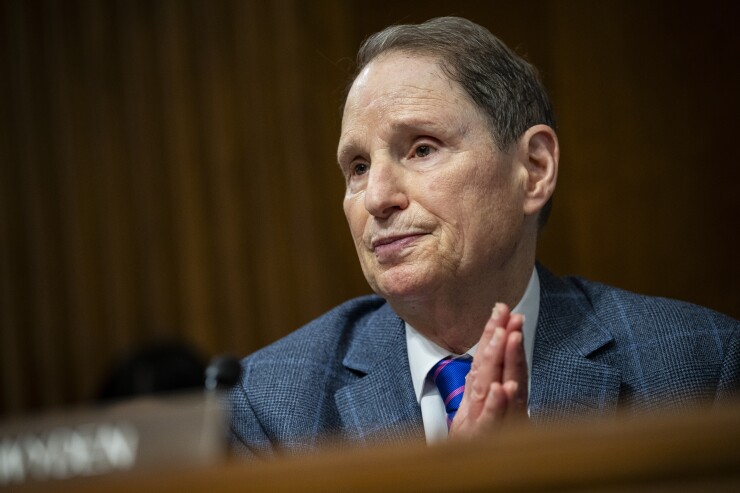The Senate Finance Committee kicked off
“In a matter of months, the Congress will begin a tax debate unlike any in recent memory,” said Sen. Ron Wyden, D-Ore. “This will be a make-or-break moment for the federal budget and America’s middle class, and the two sides have very different ideas of how to move forward,” Wyden said. “The real question is, are the very wealthy going to be taxed on the income they actually enjoy? We’re going to have to work through those issues.”
Ranking member Sen. Mike Crapo, R-Idaho, said allowing TCJA provisions to expire would “inflict multi-trillion-dollar tax hikes” on Americans. “Given the litany of tax hike proposals on the table from many of my Democratic colleagues, no area is more uncertain as we head into this election than tax,” Crapo said.
The more than two-hour hearing marked the first public discussion for the finance committee, which has jurisdiction over the tax code. Next year’s debate, which some have dubbed the Superbowl of tax policy, comes as former President Donald Trump’s signature legislation, the TCJA, will see many of its provisions expire. Trump has made extending the provisions, or making them permanent, a top campaign promise, while Democratic candidate Vice President Kamala Harris has said she wants to let them expire.
Bloomberg News
As always when tax reform comes into play, municipal market participants are worried that the tax exemption will be vulnerable, in part because the $4 trillion cost of extending the TCJA will have lawmakers hunting for pay-fors.
The tax exemption was absent from Thursday’s hearing, although other market concerns were mentioned, like the
“SALT is the only provision in the tax code that allows hardworking homeowners to deduct their property taxes,” said New Jersey Sen. George Helmy, a Democratic former chief of staff of Gov. Phil Murphy who was sworn in Tuesday after the resignation of Sen. Bob Menendez and will serve only two months as a placeholder until the November election.
Helmy cited IRS data that said 42% of New Jersey taxpayers claimed $18,000 in SALT deductions in 2016, meaning an $8,000 loss after the TCJA. “These are payments that are made to support some of the nations leading public school education systems and open spaces for families and other important provisions,” Helmy said.
Responding to the idea that the SALT deduction benefits mostly wealthy homeowners, Helmy said the cap “is actually much greater proportionately on lower- and middle-income families than higher-income families that are a much smaller set of the tax base.”
Encouraging more workforce and affordable housing, much of which is financed with municipal bonds, is another priority for Democrats next year. “How can we promote workforce housing in a tax package?” Sen. Maggie Hassan, D-N.H., asked economist Indivar Dutta-Gupta, who was one of the witnesses.
“Streamlining and improving the low-income housing tax credit and it’s also important to help with stabilizing rents and rental assistance,” Dutta-Gupta responded. “We need both supply and demand side responses.”
Lawmakers from both sides weighed in on President Joe Biden’s so-called billionaire tax, which Harris has said she supports. The proposal would impose a 25% minimum tax on those worth at least $100 million, including on unrealized gains from assets they hold, which include bonds. Sen. Steve Daines, R-Mont., called it an “unconstitutional tax to “fund her far-left agenda.”
Sen. Elizabeth Warren, D-Mass., said the minimum tax would raise $500 billion over 10 years. ”Next year, Congress has a chance to un-rig the tax code and Democrats have proposals to stitch up the loopholes, but the mega-millionaires and billionaires are whining that they cannot possibly afford to pay taxes,” Warren said.
